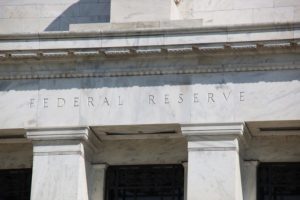Elizabeth Warren Wants to Save the Post Office by Having It Replace Payday Lenders
Sen. Elizabeth Warren endorsed a proposal by the United States Postal Service's inspector general over the weekend that could prevent the poor from having to shell out billions of dollars in fees and maybe even save the post office from sinking. pixelcatcher (CC BY-NC-SA 2.0)
pixelcatcher (CC BY-NC-SA 2.0)
Sen. Elizabeth Warren endorsed a proposal by the United States Postal Service’s inspector general over the weekend that could prevent the poor from shelling out billions of dollars in fees and maybe even save the post office from sinking. The idea is to use “the agency’s extensive physical infrastructure to extend basics like debit cards and small-dollar loans to the same communities that the banking industry has generally ignored.” In other words, save the poor from predatory payday lenders and fees amounting to $89 billion just in 2012. That’s billions that people who don’t have access to bank accounts spend on obtaining their own money, which sometimes ends up being 10 percent of struggling families’ household incomes. The plan would also inject some much needed funding into the USPS, making it an offer difficult to refuse for all of the parties involved.
Your support matters…Think Progress:
“USPS could partner with banks to make a critical difference for millions of Americans who don’t have basic banking services because there are almost no banks or bank branches in their neighborhoods,” Warren wrote in a Huffington Post op-ed on Saturday. The op-ed picked up on a report from the USPS’s Inspector General that proposed using the agency’s extensive physical infrastructure to extend basics like debit cards and small-dollar loans to the same communities that the banking industry has generally ignored. The report found that 68 million Americans don’t have bank accounts…USPS would generate savings for those families and revenue for itself by stepping in to replace…non-bank financial services companies [such as payday lender stores].
Those companies are among the most predatory actors in the money business. Payday loans with annual interest rates well north of 100 percent suck billions of dollars out of poor communities every year, with the average customer paying $520 to borrow $375. After decades of operating in a regulatory blind spot and ducking state-level reforms, the payday lending business now faces a crackdown from the Consumer Financial Protection Bureau. The threat of new rules for short-term cash loans in general has caused traditional banks to stop offering deposit-advance loans with similar features.
But while ending triple-digit interest rates and fine-print tricks is a good thing for consumers, it doesn’t reduce the demand for those financial services. The USPS could slide into that space and meet that need without preying upon those communities. “Instead of partnering with predatory lenders,” David Dayen writes in The New Republic, “banks could partner with the USPS on a public option, not beholden to shareholder demands, which would treat customers more fairly.” America’s post offices are an ideal physical infrastructure for furnishing these services to communities currently neglected by banks. Roughly six in 10 post offices nationwide are in what the USPS report calls “bank deserts” — zip codes with either one or zero bank branches.
Independent journalism is under threat and overshadowed by heavily funded mainstream media.
You can help level the playing field. Become a member.
Your tax-deductible contribution keeps us digging beneath the headlines to give you thought-provoking, investigative reporting and analysis that unearths what's really happening- without compromise.
Give today to support our courageous, independent journalists.






You need to be a supporter to comment.
There are currently no responses to this article.
Be the first to respond.